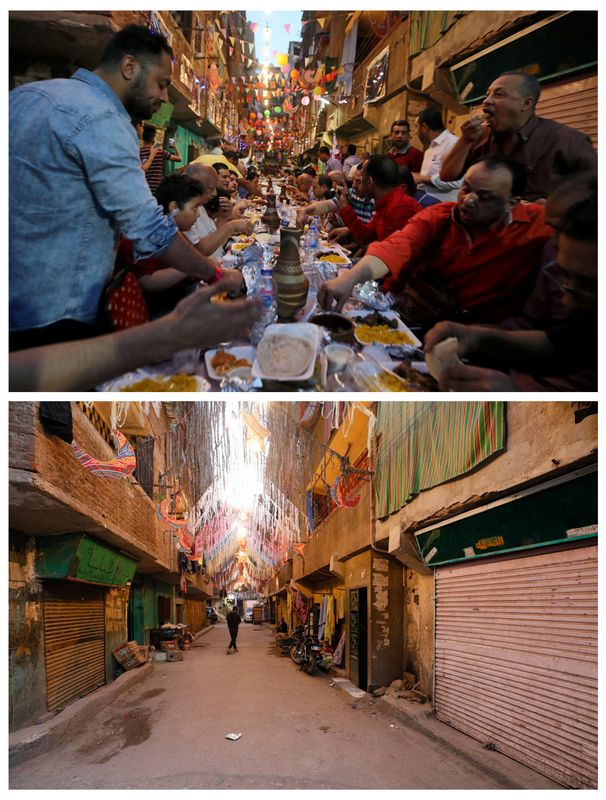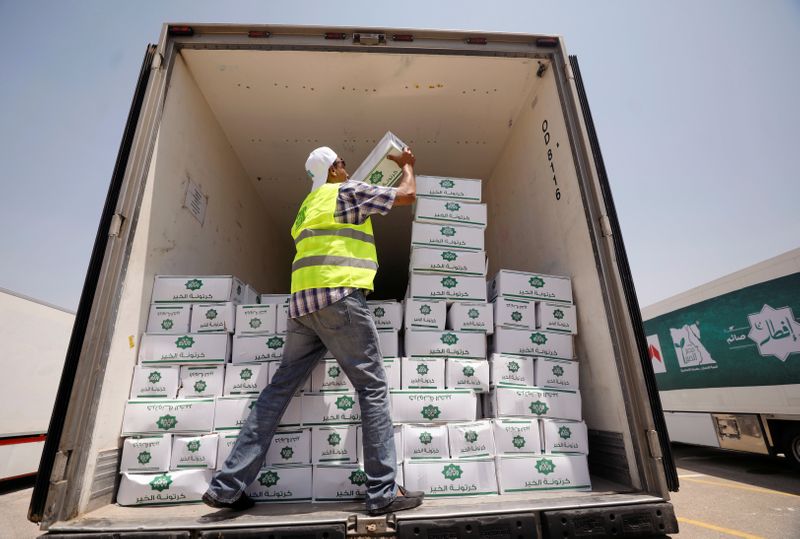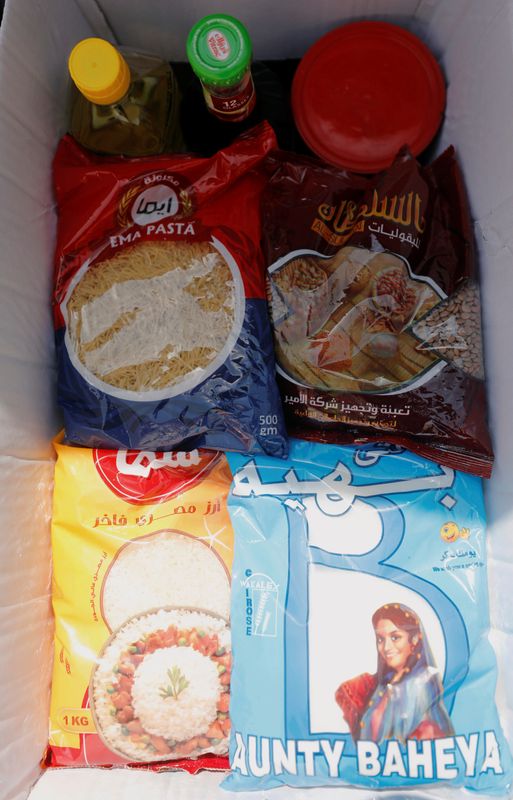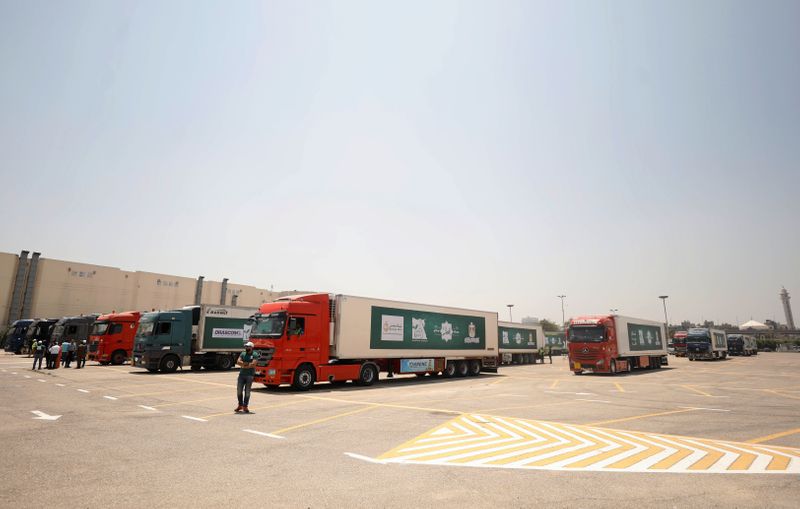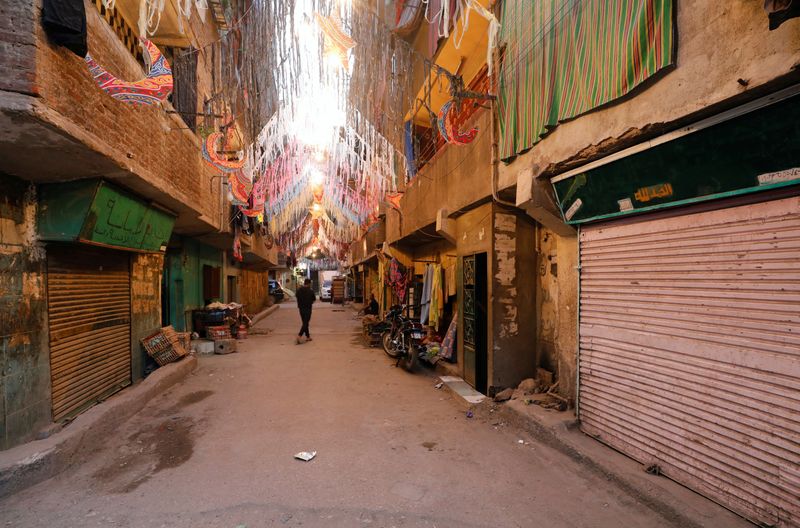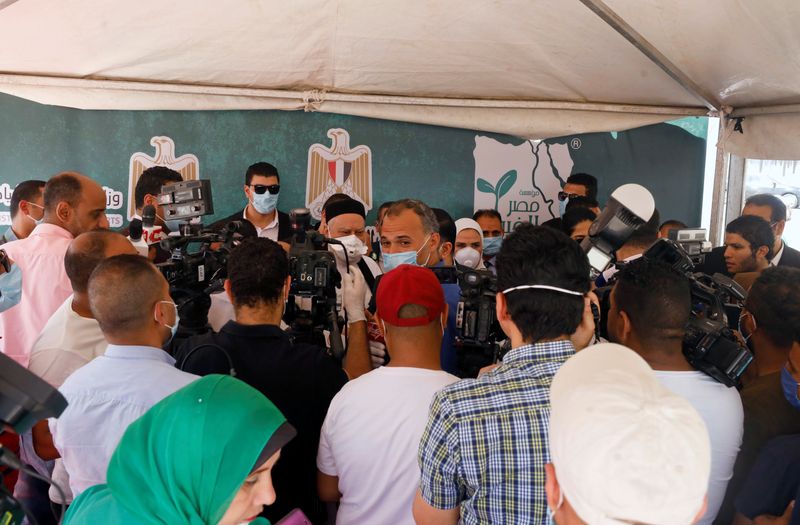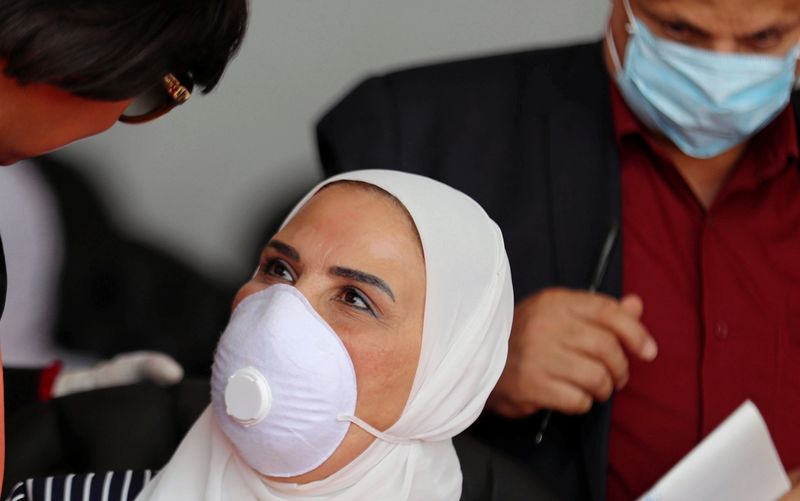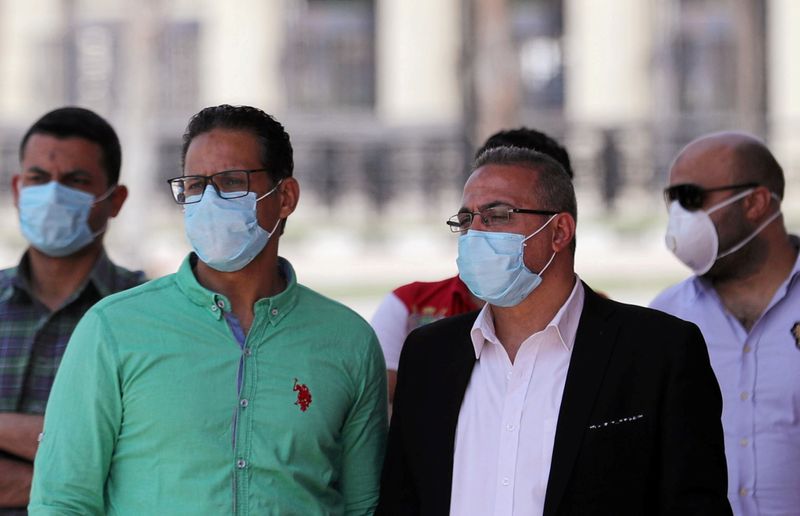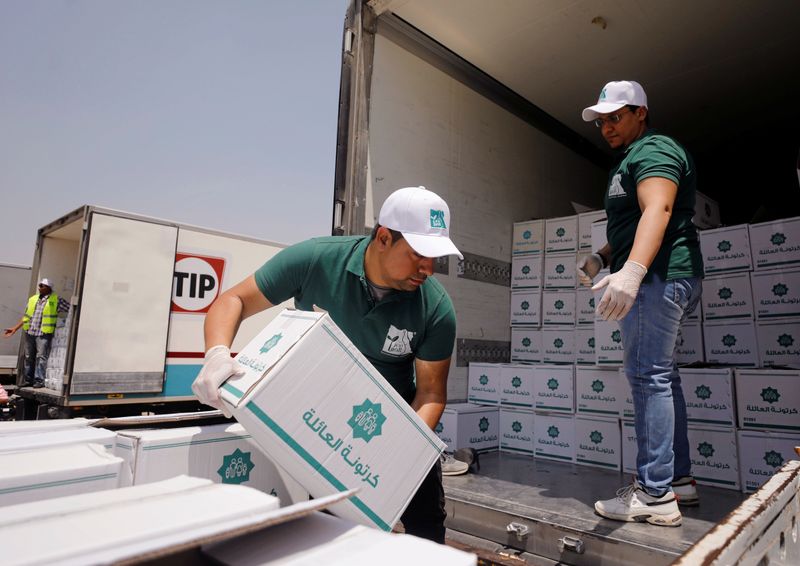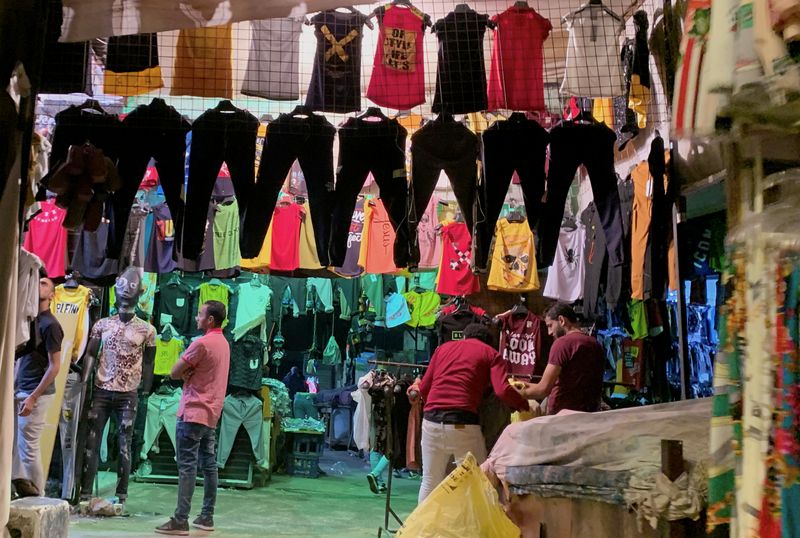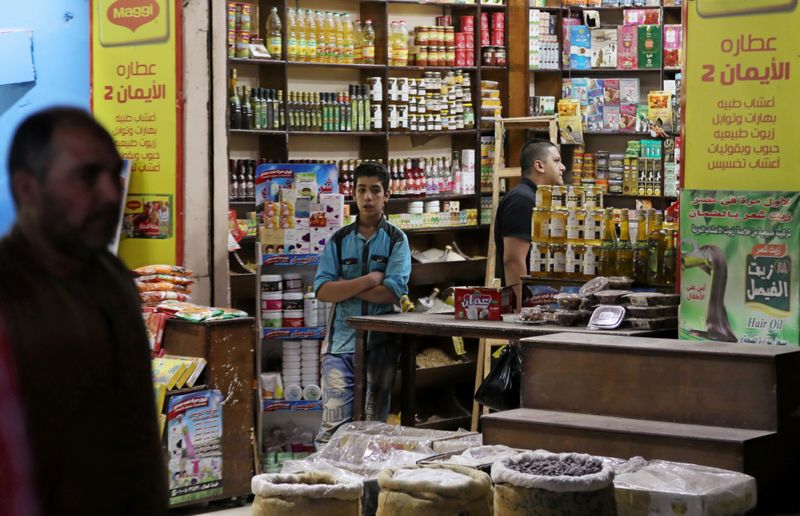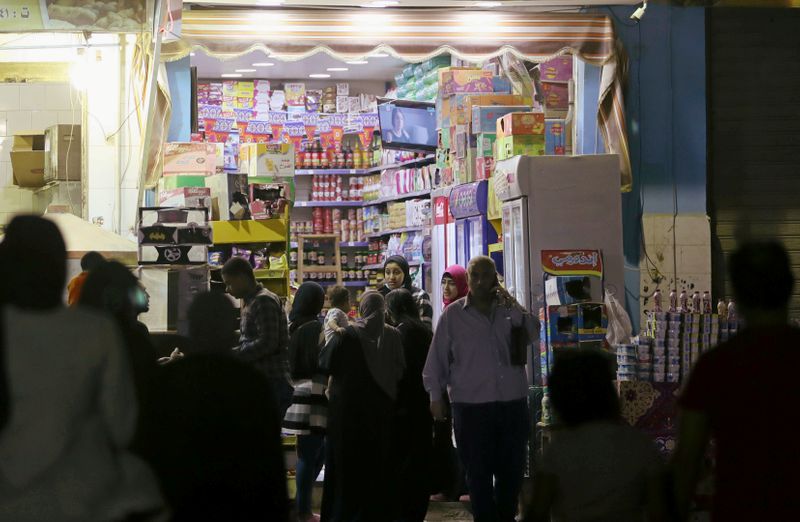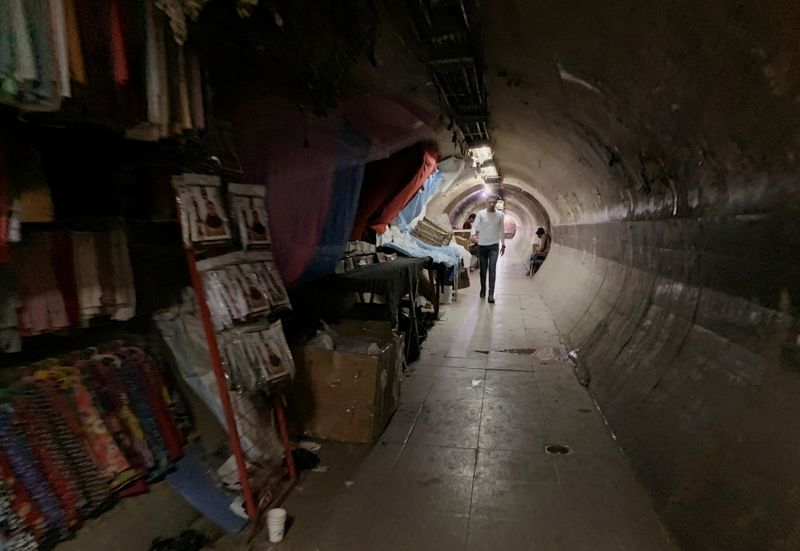CAIRO (Reuters) – In the heart of Egypt’s capital, shoppers pack sweet shops and grocery stores to stock up for fast-breaking during the Muslim holy month of Ramadan, shrugging off fears about the new coronavirus.
Little over a month since Egypt imposed strict measures to counter the virus, social customs and economic pressures are drawing people onto the streets, even as newly reported cases of the coronavirus have continued to rise.
The government is running campaigns in newspapers and on billboards to encourage social distancing. It has shut cafes and eat-in service at restaurants and imposed a night-time curfew.
But the curfew has prompted a shopping rush during the day when many stock up for fast-breaking, or iftar, at 6.30pm.
Store owners often struggle to persuade people to queue in an orderly way.
“Customers are not afraid of the coronavirus. It was very crowded (in the shop) at the start of Ramadan, so we were always asking people to stand further apart,” said Osama Ali Ahmed, 60, owner of a sweet shop near the historic al-Sayeda Zainab mosque in central Cairo.
Customers, some wearing masks, jostled for space, as they did at a nearby grocery store.
“People are careful, but this does not stop… us from going out to buy the things that we get every year,” said Ashraf Ali, 52, driver at a telecoms company as he bought pickles.
“DANGEROUS TIMES”
Egypt, a country of 100 million, has so far reported more than 7,000 cases of the new coronavirus and 452 deaths, fewer than in many European countries, though the number of new infections continues to rise.
On Sunday Health Minister Hala Zayed Said urged Egyptians to take the lockdown measures more seriously.
“It is the citizen who will control the way we get through these dangerous times. The state has completed all procedures it is responsible for,” she said.
The health ministry and state press centre did not respond to questions for this article.
Cairo residents say more people are staying at home fasting until sunset, though many roads in the city of nearly 10 million are still jammed during the daytime.
The start of the curfew has been moved back from 7pm to 9pm, and some cars can be seen flouting curfew rules at night.
The impact of the coronavirus has hit many Egyptians hard, especially those reliant on informal work such as day labourers.
Egypt’s Misr El Kheir charity is distributing almost double the number of food boxes this Ramadan compared to last year, said Ahmed Ali, a senior member of its staff.
“The number of calls we received on our hotline, and this is not normal, has exceeded 30,000 or 40,000,” he said, adding that some were day labourers who are working less due to the curfew.
Food Bank, another charity, has raised the number of families it hopes to reach during Ramadan to 1.5 million from 500,000.
(Additional reporting by Ehab Farouk, Mahmoud Mourad and Sayed Shaesha in Cairo; Writing by Ulf Laessing; Editing by Aidan Lewis and Gareth Jones)

